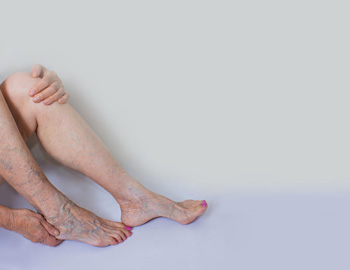Blog
Stretching Can Improve Range of Motion
 Many patients who enjoy the sport of running are often aware of the importance of preventing running injuries. When strength training and stretching techniques are frequently practiced, the likelihood of getting a running injury may be reduced. Research has indicated it is beneficial to warm up before and after running, and this can help to improve range of motion. This includes stretching the upper body, which may help to reduce existing weak spots. Many running injuries can be prevented when the time and mileage is gradually increased, and this can give the body time to adapt to successfully complete a training program. If you would like additional information how running injuries can affect the feet and how to avoid them, it is advised that you consult with a podiatrist.
Many patients who enjoy the sport of running are often aware of the importance of preventing running injuries. When strength training and stretching techniques are frequently practiced, the likelihood of getting a running injury may be reduced. Research has indicated it is beneficial to warm up before and after running, and this can help to improve range of motion. This includes stretching the upper body, which may help to reduce existing weak spots. Many running injuries can be prevented when the time and mileage is gradually increased, and this can give the body time to adapt to successfully complete a training program. If you would like additional information how running injuries can affect the feet and how to avoid them, it is advised that you consult with a podiatrist.
All runners should take extra precaution when trying to avoid injury. If you have any concerns about your feet, contact Dr. Kevin Davis of Davis Foot & Ankle Centers. Our doctor will treat your foot and ankle needs.
How to Prevent Running Injuries
There are a lot of mistakes a runner can make prior to a workout that can induce injury. A lot of athletes tend to overstretch before running, instead of saving those workouts for a post-run routine. Deep lunges and hand-to-toe hamstring pulls should be performed after a workout instead of during a warmup. Another common mistake is jumping into an intense routine before your body is physically prepared for it. You should try to ease your way into long-distance running instead of forcing yourself to rush into it.
More Tips for Preventing Injury
- Incorporate Strength Training into Workouts - This will help improve the body’s overall athleticism
- Improve and Maintain Your Flexibility – Stretching everyday will help improve overall performance
- “Warm Up” Before Running and “Cool Down” Afterward – A warm up of 5-10 minutes helps get rid of lactic acid in the muscles and prevents delayed muscle soreness
- Cross-Training is Crucial
- Wear Proper Running Shoes
- Have a Formal Gait Analysis – Poor biomechanics can easily cause injury
If you have any questions, please feel free to contact our office located in Springfield, TN . We offer the newest diagnostic and treatment technologies for all your foot care needs.
Possible Symptoms of Neuropathy
 The medical condition that is known as neuropathy can affect the feet. Common symptoms patients experience may include a numbing or tingling sensation, and it is often difficult to feel existing cuts or bruises. People who are diabetic may be prone to developing neuropathy. It is beneficial for these patients to have regular foot examinations, refrain from walking barefoot outdoors, in addition to wearing shoes that fit correctly. Relief may be found when blood glucose levels are properly managed, and healthy eating habits are implemented. If you have symptoms of neuropathy, it is strongly advised that you are under the care of a podiatrist who can help you to begin the correct treatment plan.
The medical condition that is known as neuropathy can affect the feet. Common symptoms patients experience may include a numbing or tingling sensation, and it is often difficult to feel existing cuts or bruises. People who are diabetic may be prone to developing neuropathy. It is beneficial for these patients to have regular foot examinations, refrain from walking barefoot outdoors, in addition to wearing shoes that fit correctly. Relief may be found when blood glucose levels are properly managed, and healthy eating habits are implemented. If you have symptoms of neuropathy, it is strongly advised that you are under the care of a podiatrist who can help you to begin the correct treatment plan.
Neuropathy
Neuropathy can be a potentially serious condition, especially if it is left undiagnosed. If you have any concerns that you may be experiencing nerve loss in your feet, consult with Dr. Kevin Davis from Davis Foot & Ankle Centers. Our doctor will assess your condition and provide you with quality foot and ankle treatment for neuropathy.
What Is Neuropathy?
Neuropathy is a condition that leads to damage to the nerves in the body. Peripheral neuropathy, or neuropathy that affects your peripheral nervous system, usually occurs in the feet. Neuropathy can be triggered by a number of different causes. Such causes include diabetes, infections, cancers, disorders, and toxic substances.
Symptoms of Neuropathy Include:
- Numbness
- Sensation loss
- Prickling and tingling sensations
- Throbbing, freezing, burning pains
- Muscle weakness
Those with diabetes are at serious risk due to being unable to feel an ulcer on their feet. Diabetics usually also suffer from poor blood circulation. This can lead to the wound not healing, infections occurring, and the limb may have to be amputated.
Treatment
To treat neuropathy in the foot, podiatrists will first diagnose the cause of the neuropathy. Figuring out the underlying cause of the neuropathy will allow the podiatrist to prescribe the best treatment, whether it be caused by diabetes, toxic substance exposure, infection, etc. If the nerve has not died, then it’s possible that sensation may be able to return to the foot.
Pain medication may be issued for pain. Electrical nerve stimulation can be used to stimulate nerves. If the neuropathy is caused from pressure on the nerves, then surgery may be necessary.
If you have any questions, please feel free to contact our office located in Springfield, TN . We offer the newest diagnostic and treatment technologies for all your foot care needs.








